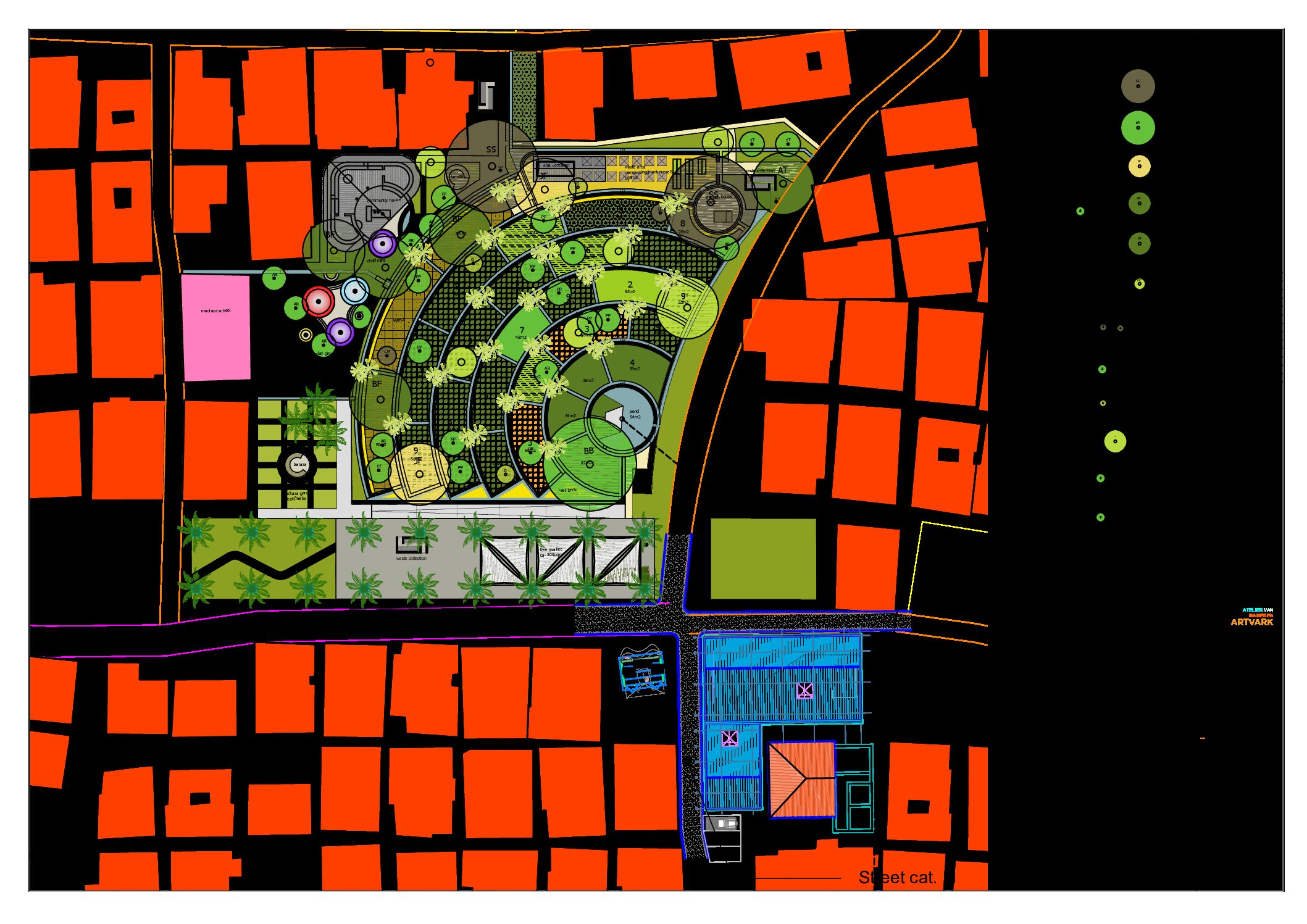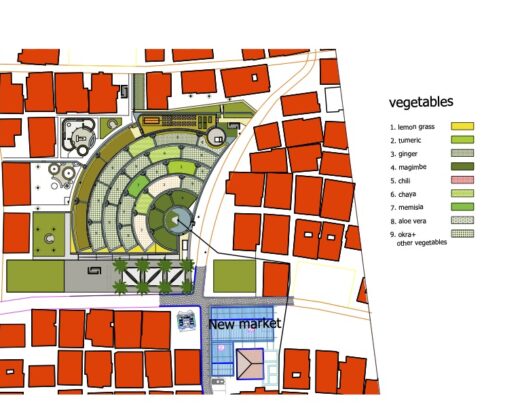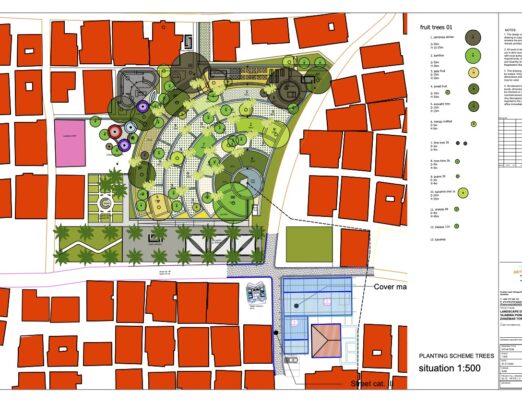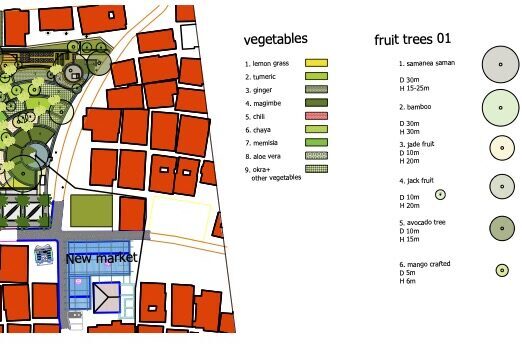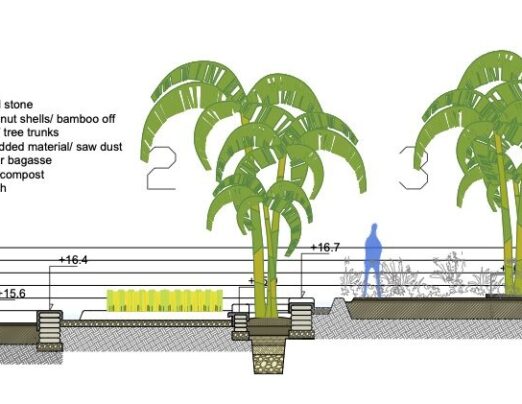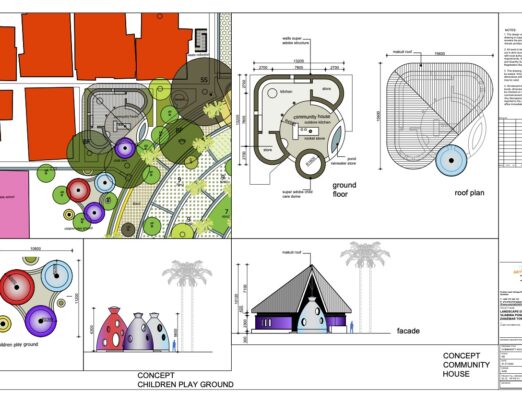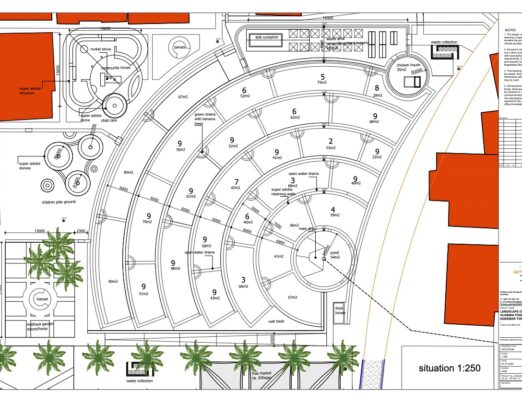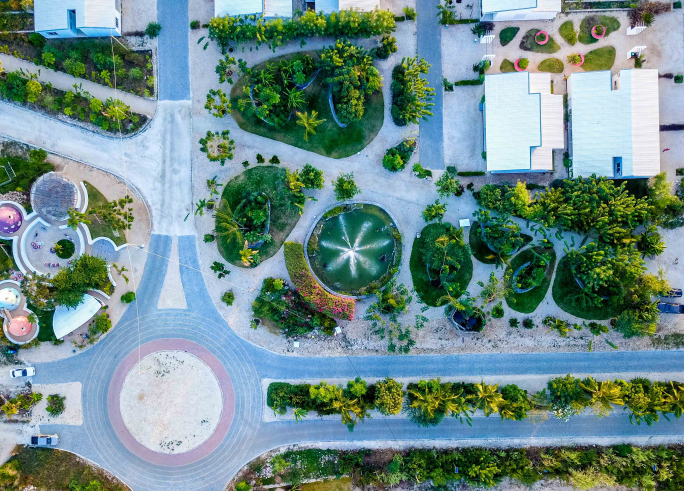Meya Magomeni Permaculture Community Garden
Turning a struggling neighborhood into a flourishing community
The SDG 11 also known as the Urban SDG aims to ”Make cities and human settlements inclusive, safe, resilient and sustainable.” Considering that cities represent half of the world’s population and two-thirds of the global economy, it can be said that the SDGs had been adopted in an urban world. It is for this reason that we recognize that issues like poverty eradication, climate change reduction, inequality, higher education, employment, etc. are fundamentally relevant and crucial to urban areas like the Vibijwa Pond area. Urban areas will be the central economic, political and social hubs of the 21st century.
Presently, we have seen that cities need to transform themselves to overcome diseases resulting in pandemics and find innovative ways that will end up benefiting all future residents as in creating urban green belts for walking and biking at a safe distance in even the densest places, easy access to nature for urban areas that will keep productive farmland and fresh food supply nearby, as well as initiatives on protecting the most exposed city residents. PDC can achieve various SDGs and other common-sense steps in the Meya community and Zanzibar in general through the tools of permaculture by developing practical solutions to challenges facing urban centers.
The collection of “indigenous knowledge is a foundation of our design” - After reading the Meya Magomeni community profile, interviewing the community and Kassim Khamis Nyuni, Director, ZanPUD, Executive Member Recovery Community Zanzibar (Sober Houses) we came to the following main features of our design as well as point out the Sustainable Development Goals that these actions tackle: a Baraza - garden, a Free market, a Play school, a Vibijwa Permaculture community garden, a Plant nursery, a Composting & soil area and a Community centre.
The Play School
Support mothers working on the markets, vegetable gardens, poultry area or value adding area.
Magomeni Permaculture Community Garden
Terrace agriculture
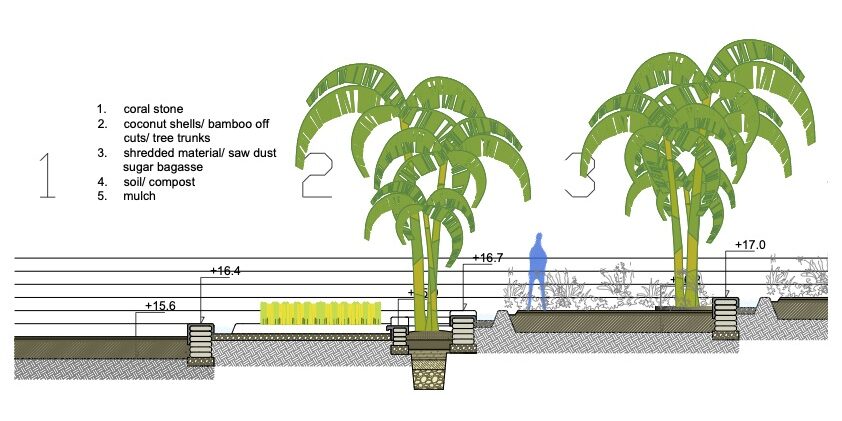
Vibijwa Permaculture Community Garden
Slowing down, spreading and sinking stormwater
We suggest a permaculture gardening training on site for the participants in the community supported by already existing manuals. We can in the future assist in training the trainers of the community to become a truly sustainable model and develop into a training center for other communities to follow.
Chicken Coop “Banda la kuku”
The chicken that digs for food will not sleep hungry. – Bayombe Proverb
Composting & Soil building
The Meya Magomeni community Sack garden project
Plant Nursery
For Vegetable Seedling Production & Seed saving
Community Kitchen
Adding value


